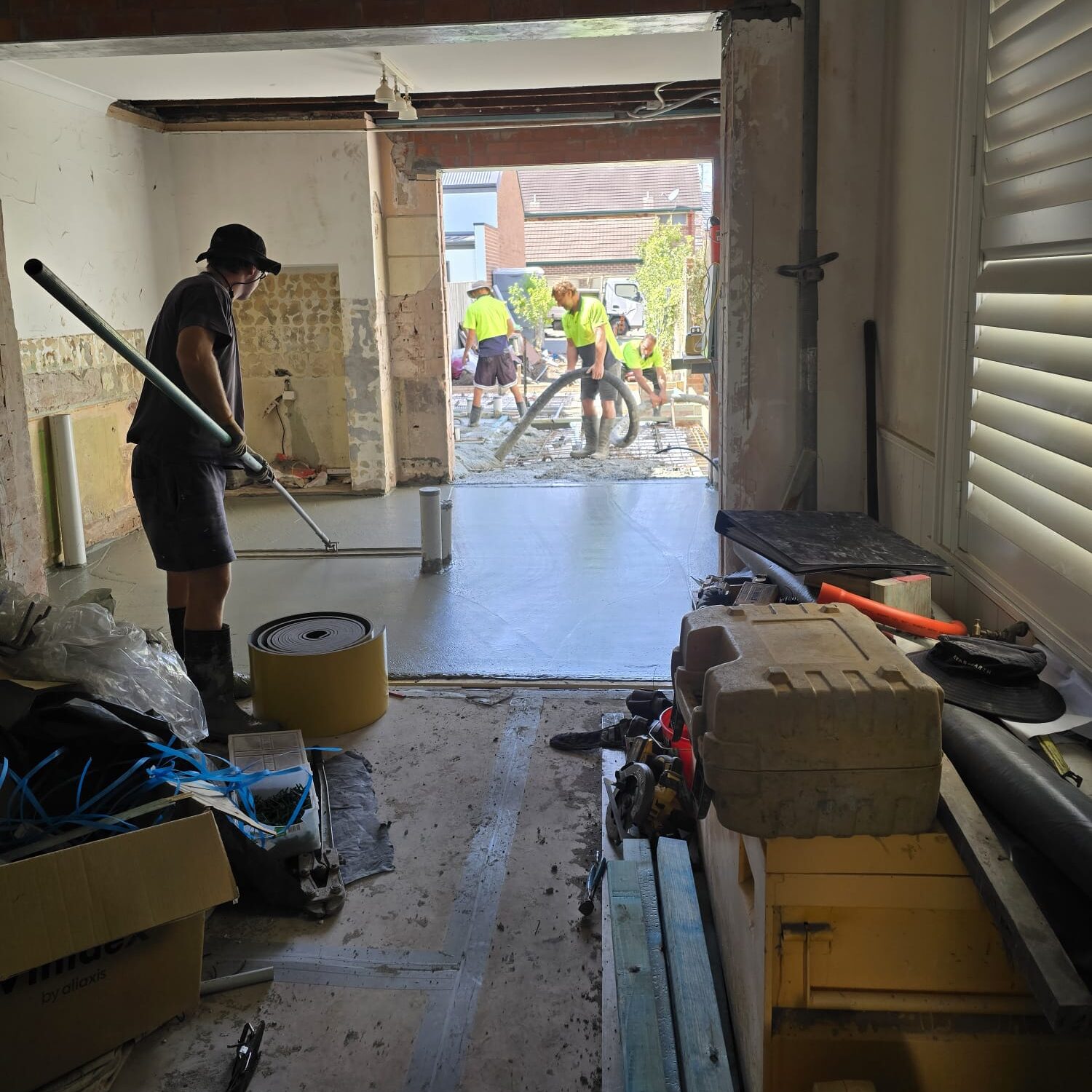Are you considering the installation of a shed slab, creating a new driveway, or laying footings for a home extension? You may have heard the term “cement pump.” But what does this term actually mean, and is it vital for your construction project?
This comprehensive guide offers invaluable insights about hiring a cement pump and illustrates how employing one can significantly improve your next concrete pour. It achieves this by streamlining the process, ensuring cleanliness, and enhancing efficiency throughout your construction activities.

Understanding the Difference: Cement Pump vs Concrete Pump
In the construction sector, it is a frequent error to interchange the terms cement and concrete. As a result, when individuals mention a cement pump, they are typically referring to a concrete pump. This advanced machinery is specifically designed to transport mixed concrete from the delivery truck directly to the precise location needed for your project.
Concrete pumps are especially advantageous in numerous scenarios, such as:
- Delivering concrete to challenging locations, such as behind a house or within narrow areas
- Eliminating the necessity for wheelbarrows, thus reducing physically demanding manual labour
- Ensuring a cleaner and more organised job site, leading to enhanced productivity
There is no specific machinery that solely pumps cement because cement is merely one constituent of concrete. Therefore, when preparing to pour a slab or lay footings, what you truly require is a concrete pump. For domestic projects, a line pump is the most frequently utilised choice.
In What Scenarios Is It Crucial to Employ a Cement Pump?
If you find yourself in any of the following situations, it is essential to consider using a cement pump (or more accurately, a concrete pump) to conserve substantial time, energy, and reduce mess:
- Pouring a shed slab in your backyard
- Replacing an existing driveway that has deteriorated
- Installing footings for a deck or a granny flat
- Working in tight access or confined spaces where manoeuvrability is restricted
In these instances, using a concrete pump will undoubtedly enhance the efficiency of your project. By opting for a pump rather than relying on wheelbarrows or attempting to pour directly from the truck, the concrete can be delivered accurately to where it is needed, even if that location is over 30 metres away from the road.
Key Steps for Effectively Hiring a Cement Pump (Concrete Pump)
Securing a concrete pump can be a relatively straightforward process; however, ensuring you make the right decision can help you avoid unnecessary complications. Here is a simple yet effective guide to assist you:
1. Determine the Specifics of Your Pouring Project
Are you pouring a slab, establishing footings, or creating footpaths? Understanding the intricacies of your project will aid in selecting the appropriate pump size and configuration tailored to your specific needs.
2. Calculate Your Pour Volume with Precision
Determine the required volume in cubic metres by applying the formula (Length × Width × Depth in metres). If you are uncertain about how to perform these calculations, our team is more than happy to assist you, ensuring you account for any potential overrun. Here is a guide on how to calculate the amount of concrete you will require.
3. Assess Your Access Points for Concrete Delivery
Can we reach the site using a hose line? Is there adequate space for a concrete truck? It is vital to communicate any access limitations so we can plan effectively, ensuring smooth operations and avoiding delays.
4. Schedule the Pump (Including Concrete Supply and Labour Services)
At Hunter Concrete Pump Hire, we offer comprehensive support, which includes coordinating the concrete supply, labour, and the pump — all in one seamless package, enhancing your overall experience and efficiency.
Your Local Experts: Providing Reliable, Transparent, and Efficient Solutions
If you are located in Newcastle, Maitland, or the Hunter Valley, our team serves as your trustworthy local choice for professional and clean concrete pumping solutions. We provide mini pumps and line pumps specifically tailored to residential projects. Our pricing structure is clear and straightforward, offering options for flat rates or hourly rates, ensuring you are fully informed about what to expect.
Regardless of whether this is your first project or you are a seasoned expert, we will guide you through the entire process, ensuring that everything is executed correctly and efficiently from start to finish.
Frequently Asked Questions Answered
Is it called a cement pump or a concrete pump?
While many people refer to it as a “cement pump,” the correct terminology is “concrete pump.” Cement is merely one component of the comprehensive mix utilised in construction.
What are the costs associated with hiring a cement pump?
The rates vary based on the specifics of your job. At Hunter Concrete Pump Hire, our flat rate starts at $800, or you may prefer to book on an hourly basis. We will help you evaluate the best option that suits your specific job requirements.
Can I rent a pump without ordering concrete?
Absolutely. However, we can also assist in supplying the concrete mix if you prefer to have a single point of contact for your entire project, simplifying the process.
In Need of Assistance with Your Project?
Whether you are preparing for a slab pour, a shed installation, or laying footings for a new build — we are here to assist you in identifying the appropriate pump, calculating the required amount of concrete, and overseeing the entire pouring process to ensure everything goes smoothly and efficiently.
The Article: Cement Pump: Understanding Its Use and Importance first appeared on https://writebuff.com
The Article Cement Pump: Key Insights on Its Use and Significance Was Found On https://limitsofstrategy.com





No responses yet